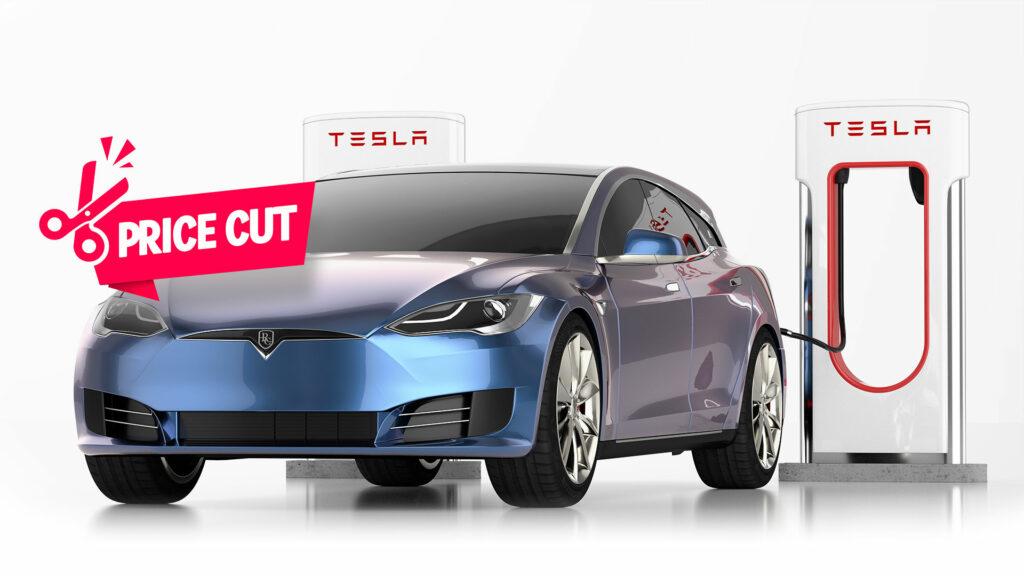Tesla has applied a new set of price cuts to its top of the line X and S models in certain markets, with the price of the Model X dropping by as much as $5,000 in the States. This new move to be ‘as aggressive as possible' on price, comes hot on the heels of Testa announcing record unit sales for Q1. Will there be more cuts to follow and how will Tesla’s moves affect other car makers?
Thought to be a pre-emptory response to an up-coming move by the Federal Government to reduce EV tax credits, this will be the fifth price cut in recent times by the EV market leader. Price moves in the UK helped the Tesla Model Y achieve a number one spot in the sales charts for March 2023.
While consumers will be happy that these products are slowly becoming more affordable, industry analysts will be worrying about Tesla’s margins. Sure enough, at the time we went to press, Tesla’s share price had fallen from just over $207 to $185 in a matter of days. Even with that fall, Tesla remains over three times larger than Toyota in terms of value (MarCap).
Companies continuously work to improve operations and are constantly considering what kind of tactics might help them win more business. Musk has recently come out with a far-reaching strategic statement, as he looks to show on-going leadership in a highly competitive market.
Musk said that the cost to the US economy of remaining reliant on fossil fuel, will be more than $14 trillion – while moving the substantial bulk of the country across to sustainable electricity will cost $10 trillion. The project that Musk is referring to, would likely take 20 years to complete – and would spell the end for many companies that rely on oil/gas/coal for revenue.
The plan laid out by Tesla shows investments of $2.2 trillion in battery factories, $1.8 trillion into vehicle factories and a similar amount for transportation, mining and refining. Finally, there is a figure of $1.2 trillion for electrolisers (generally used to create hydrogen for fuel cells).
For now, all we know is that a ‘need to gain as much market share as possible' mentality is pushing Tesla to be more and more price competitive. That's good news for those of you in the market for new EVs – less so for those who are looking to offload electric vehicles that were purchased during the peak price period of the last couple of years.
When news broke on Forbes about Tesla launching a smaller, more affordable EV around the $25,000 mark, interest across the globe was intense. Using the latest cost-cutting production techniques, next-gen battery systems and Tesla's reputation for leading the market – the so-called ‘Model 2' could impact other EV maker's sales in a substantial way.
So far, Tesla has taken the global car market by storm by out-innovating the competition. Cementing its position will take production numbers. The company needs to be able to scale-up and quickly.
With lower-cost Tesla vehicles on the horizon, what are the other big challenges for traditional car market leaders?
One very real and immediate headache must be ‘How to guarantee future values for cars that cost over £50,000 new', when the buyers they would expect to attract are having their heads turned by more competitive pricing on new Tesla models – and the possibility of a highly affordable Model 2 in the near future?
During Tesla's recent sale on the Model 3, the price fell far enough that you could almost buy two brand new Teslas for for the same money as a single Mercedes EQC. Sure, they are different cars and might appeal to different audiences – but anyone spending ‘new Mercedes money' will have noticed that the Model 3 accelerates quicker, has a better top speed and much faster DC charging – as well as its own charger network.
Now consider that a used EQC (which lost a huge amount of its initial street price), could still cost more than a new Tesla. Not an enviable position to be in for the German car maker. Along that path lies undesirable/unprofitable subsidies. These have already started to manifest themselves. As part of a push to help move the market for second hand EQC vehicles, Mercedes recently offered up to £9,000 off the price of ‘Previously Owned' models. That is some adjustment.
After two years of component restrictions and enormous prices, consumers will certainly benefit from a price war in the EV market.
That leaves WhichEV wondering if these recent discounts are a one-off thing to drive sales at the end of Q1 2023 – or if they are part of a much more aggressive, on-going battleplan from Elon Musk, to increase production market share.
